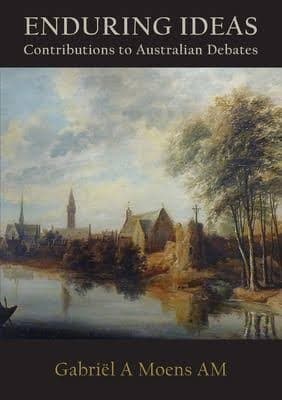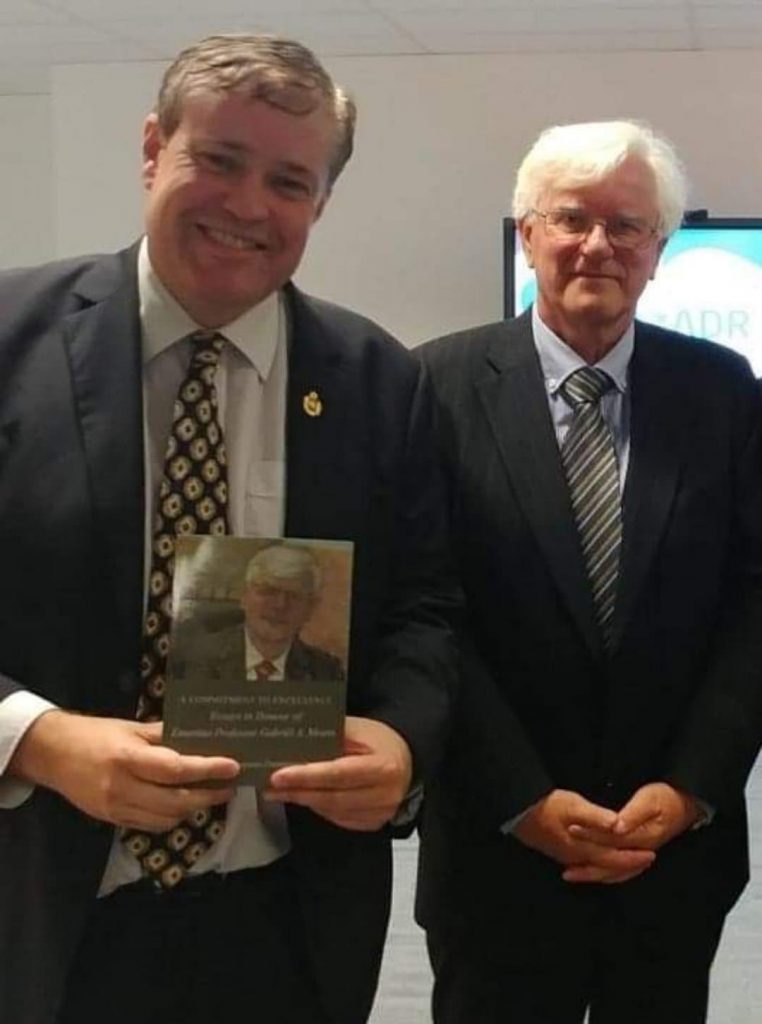Gabriël A. Moens AM is Emeritus Professor of Law at the University of Queensland. As he was confined to his home office, he found time to look at his previous works which go back about four decades.
To our great profit he has collected eighteen of these papers and now published them as an excellent book entitled ‘Enduring Ideas: Contributions to Australian Debates’ (Connor Court, 2020).

The papers consolidated in this book deal with issues and themes which remain more relevant than ever. For example, one of the debates that took place in Australia from the 60s to the 80s involved the right of people to disobey laws.
Professor Moens reminds us in Chapter 2 (‘On Civil Disobedience’, 1980) that there are instances of governmental arbitrariness which can be remedied only by means of civil disobedience.
He starts this chapter by describing civil disobedience as the violation of law which is promulgated in accordance with the formal requirements of a legal system. Then he communicates that some acts of civil disobedience appear to be protected by Articles 18 and 19 of the International Covenant on Civil and Political Rights.
Accordingly, the need of governments to legally respect our fundamental freedoms of thought, conscience and religion implies a natural right of the citizen to breach any legal norm that is inconsistent with the ordinary exercise of these fundamental freedoms.
Professor Moens is careful to explain that the efficacy of civil disobedience is dependent on its rationality. He proceeds to demonstrate how a commitment to rationality requires that the principles invoked as justification for civil disobedience must be balanced against the principle of regular obedience to validly enacted laws.
This, according to him, is particularly important because human beings are naturally inclined to disobey rules with which they personally disagree.
Professor Moens also explains “that a system does not function adequately anymore when some groups have entrenched power positions in society and use their power to impose their will on weaker and vulnerable classes of people”. He informs that “when the opportunities for change which are provided by the legal system are deficient, civil disobedience is often an effective and expeditious way to challenge the law”.
In other words, civil disobedience might be justified when the normal channels of social and legal change can no longer function properly, or whenever serious grievances are not properly addressed by the State and the voice of the people is simply not heard.
At the time Professor Moens was preparing this outstanding book, Australia was already facing the alleged Covid-19 pandemic. In this context, the fourteenth chapter considers the role of the State in the protection of public health.
First, government measures created to combat the coronavirus are examined. Professor Moens characterises these measures as deeply paternalistic in nature, having an enormous and deleterious effect on the basic rights of people, including unintended consequences for the protection of their own health.
In addition, the legality of Covid-19 measures is assessed particularly in light of their possible violation of constitutional rights and principles. Of course, Professor Moens is a leading constitutional law academic and his book ‘The Constitution of the Commonwealth of Australia Annotated’ (LexisNexis, 9th ed.) is regarded by The Hon Robert French, a former Australian Chief Justice, as ‘a very useful reference text for students and practitioners at all levels in the field of constitutional law’.
Be that as it may, Professor Moens writes in Chapter Six of this collection, many Australians “take freedom … for granted and do not realise that the price for freedom is eternal vigilance”. The evidence of facts and the testimony of current events are all supportive to this assumption.
In sum, I can hardly overstate the relevance of Professor Moens’ ‘Enduring Ideas: Contributions to Australian Debates’, to a better understanding of the enormous challenges we are presently facing as a nation, and potentially for a very long time.

Augusto Zimmermann LLB, LLM, PhD is Professor and Head of Law at Sheridan Institute of Higher Education. He is also Professor of Law (Adj.) at the University of Notre Dame Australia (Sydney campus) and President of the Western Australian Legal Theory Association (WALTA).
You can purchase a copy of Gabriël A. Moens AM’s ‘Enduring Ideas: Contributions to Australian Debates’ at https://www.connorcourtpublishing.com.au/ENDURING-IDEAS-Contributions-to-Australian-Debates–Gabri%C3%ABl-A-Moens-AM_p_402.html